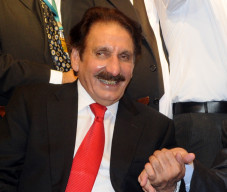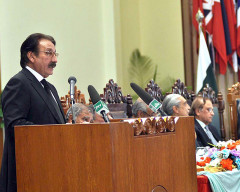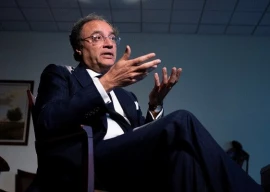
ISLAMABAD:
To protect the legal rights of rural communities and hold public institutions accountable, an ongoing project in Khyber-Pakhtunkhwa (K-P) needs to be replicated in other provinces. This was the crux of a two-day conference on “Empowerment and Rights to Communities - Rural Support Programme Network (RSPN)” that began here on Monday.
Titled “Legal Empowerment”, the project was launched in three districts of K-P in November 2011. The districts are: Nowshera, Swat and Chitral. Launched by the Sarhad Rural Support Programme in collaboration with Open Society Foundation (OSF), the project addresses issues of low legal literacy in rural communities, weak links among justice mechanisms and a lack of reliable legal support. Whereas the constitution guarantees the rule of law, human rights and equal opportunity before the law, OSF cites over 63 per cent population in remote areas does not have access to quick and affordable justice system.
RSPN Project Coordinator Idrees Hayatt said that it was essential to identify justice needs of the people in remote areas and work at the grassroots level. He added that the pilot project has yielded good results in K-P. In the first phase, the project identified these needs and helped to structure the project. The next phase will assess these needs. During the first six months, the project reached out to almost 2,000 people through its awareness raising campaigns.
“The legal needs assessment is important in each of the provinces, according to the issues therein,” Natalia Tariq, the programme officer from OSF told The Express Tribune. Hayatt said billions of people are living in poverty because they lack access to the rule of law. “We used legal empowerment as a tool in development and the success stories are making us expand to the rest of the country,” he added. Hayatt said that men and women have been trained to become paralegals in targeted union councils that create awareness of legal rights and legal procedures will enhance willingness and build capacity to resolve disputes through formal and informal justice mechanisms in targeted communities. “There are more cases registered now than before,” said Hayatt.
Published in The Express Tribune, April 30th, 2013.









































1713521455-0/Untitled-design-(9)1713521455-0-270x192.webp)





















COMMENTS
Comments are moderated and generally will be posted if they are on-topic and not abusive.
For more information, please see our Comments FAQ